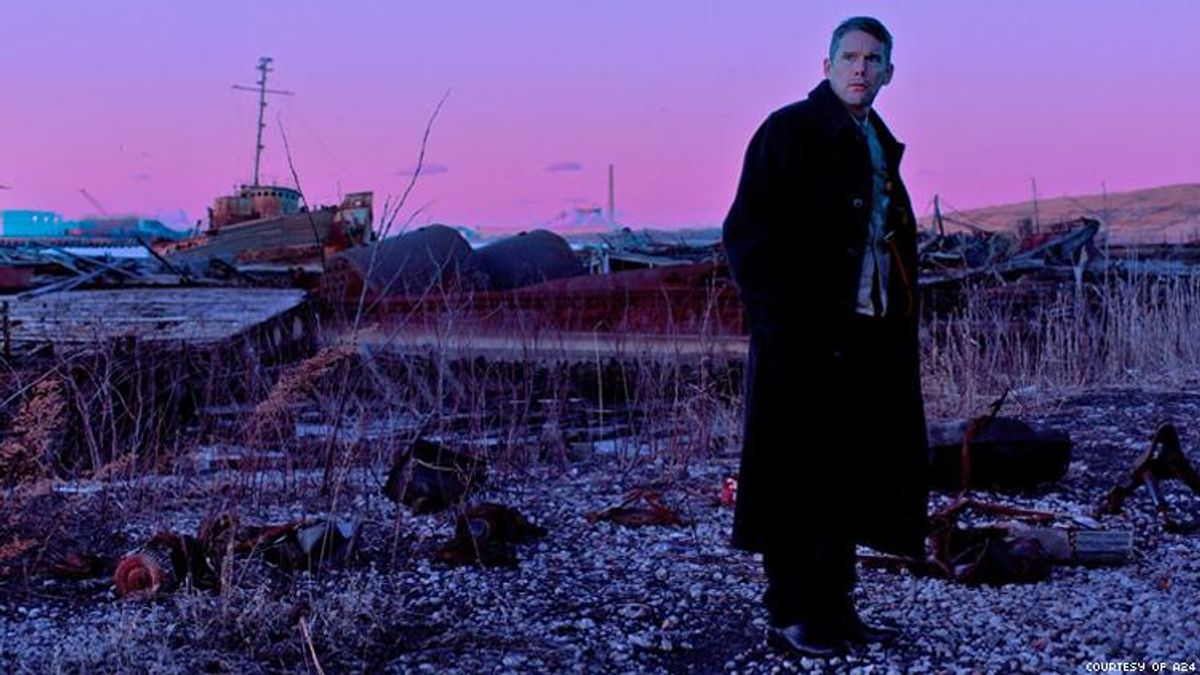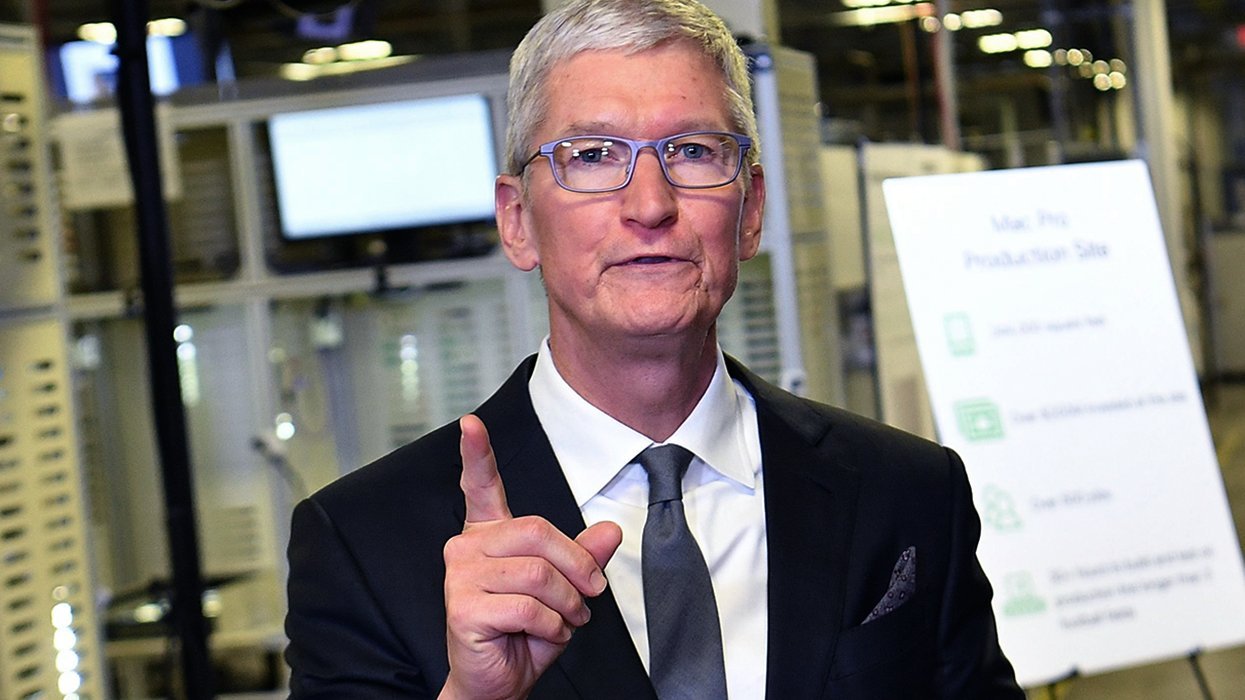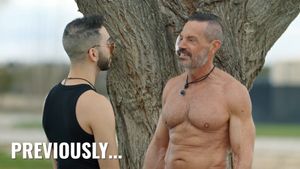When was the last time you heard someone describe a new American movie as "austere"? That's the question bandied about the other night between some of my film friends, a few of whom had just seen the new Paul Schrader film First Reformed, now opening into nationwide release from A24. And indeed, the film is restrained and solemn, ecstatically ascetic from the first shot to the last, the first being a lengthy, low, flat tracking shot towards an antique rural church, the last a wizardly surge of unfathomable beauty better left unspoiled.
Related | A Conversation With Wayne Koestenbaum: "Some People Just Need a Timely Intervention"
The unadorned formal style Schrader deploys here bears close relation to the work of his idols: Yasujiro Ozu, Robert Bresson, Kenji Mizoguchi, Carl Dreyer. As a 24-year-old student at UCLA Film School, the Calvinist-raised Schrader wrote and published the classic film theory text Transcendental Style In Film while his classmates were getting high on Easy Rider and Mike Nichols. In the book, recently reissued by UC Press, he took his cues from Susan Sontag's early essay on Bresson, and parsed at length the exacting cinematic style of these directors, all of whom rendered filmically that which is transcendent or holy. These insights have resurfaced visually when Schrader's artistry is at its best. Schrader is best known for his screenplay Taxi Driver, but he wrote and directed American Gigolo, Patty Hearst, and Light Sleeper, all three of which repurpose the classic ending of Bresson's Pickpocket, in which the criminal achieves nirvana behind bars. To be sure, First Reformed is 71-year-old Schrader's finest work, and the movie in which he returns most assuredly to his youthful focuses. To bastardize Wordsworth, the grad student is the father of the Gramps, and First Reformed is indeed the film of an old man, worrying but wise.
Ethan Hawke, gaunt and weather-beaten, is Toller, a former military chaplain ravaged by an undiagnosed gastric condition. He has accepted a post at First Reformed Church in upstate New York, which has a congregation you could count on two hands. It survives as a tourist destination through the patronage of a nearby megachurch led by Pastor Jeffers (Cedric the Entertainer, here credited as Cedric Kyles). After a service, a pregnant young woman named Mary (Amanda Seyfried) approaches Toller, imploring him to talk with her husband Michael, played by Philip Ellinger, who has the face I picture when I read Dostoyevsky. He is an environmental activist who believes it would be immoral to birth a child onto a doomed, hopeless planet. The subsequent developments are shattering.
Like the nameless priest in Bresson's Diary of a Country Priest, Toller keeps recollections as this story unfolds, and here the accuracy of these journal entries evolves steadily away from Toller's actions. Watch and listen closely as Hawke tells this story in his close-ups and narrations; his performance contains nuances I barely grasped in my first viewing and surely has more to offer when I see it again. Exactly what happens to Toller isn't for me to reveal here, but the manifold dimensions of this characterization are earned slowly and methodically.
Schrader's screenplay is a model of the form; it is as spare, intricate, unpredictable, and firey as a Calvinist sermon.
The performances more than rise to the material's quality. Toller is the man Ethan Hawke was born to play. The oft-misused Amanda Seyfried here has her best role since the indelible idiot Karen Smith, and she brings a Sandy Dennis quality to her deliberate, pause-thickened line readings. Her enormous Botticelli eyes are now the refined instruments of an assured actress, often striking five distinct feelings at once. Also excellent is Cedric the Entertainer, cast against type in a rare dramatic role, and his conflicted clergyman is as sociologically precise a creation as his iconic Eddie Walker from the Barbershop franchise.
First Reformed is the most important American movie since Darren Aronofsky's mother!, which deploys the exact opposite style on much of the same subject matter. That movie was a cruel, beautifully deranged cacophony, hazardous and horrible, alive and vital and like nothing else. First Reformed is a different beast altogether, a stunningly sane rhapsody on our moment in time on this planet, and on a society built and burdened by faith. How wonderful it is that a movie so sound, so old-fashioned, and, yes, so, so very austere feels like the most original thing in American cinema.
Austin Dale is a writer in Los Angeles.




















































































